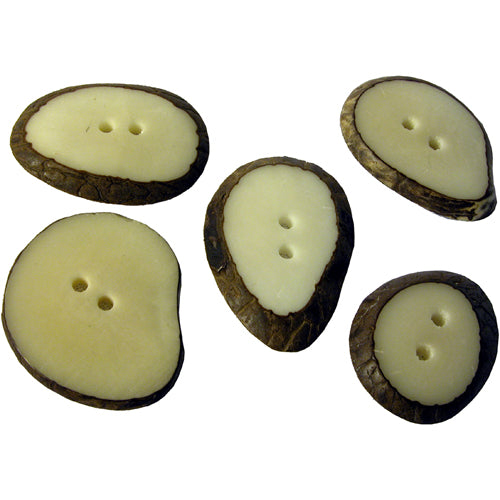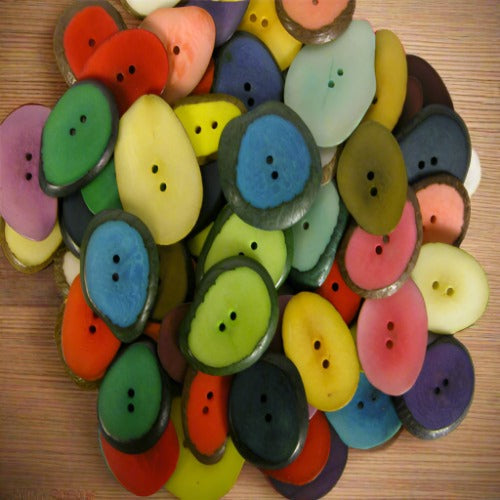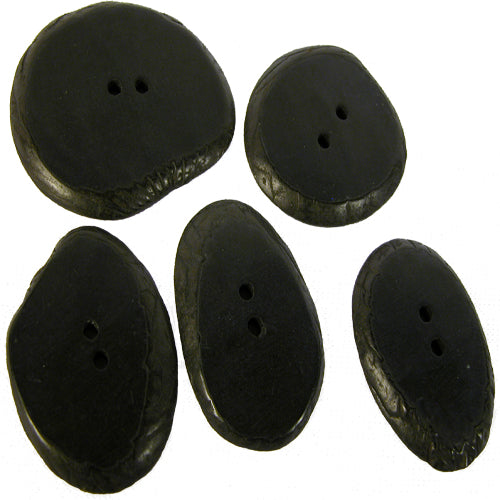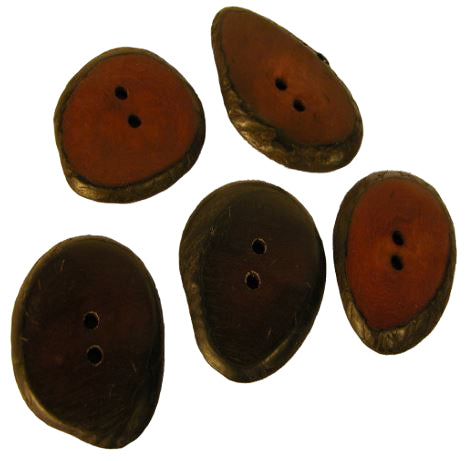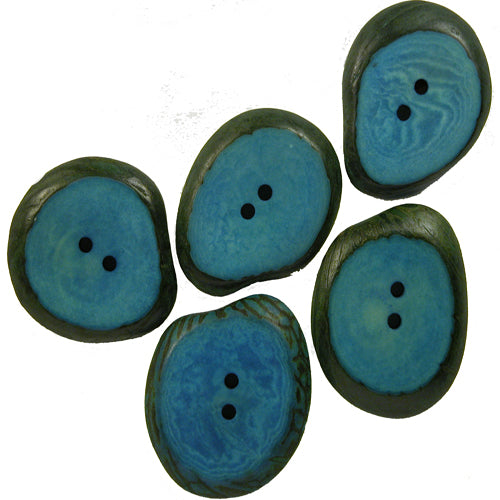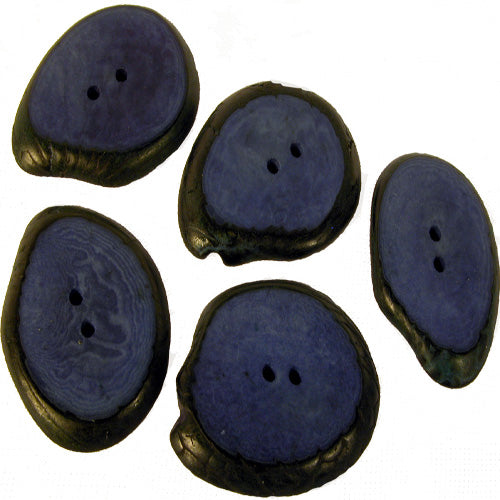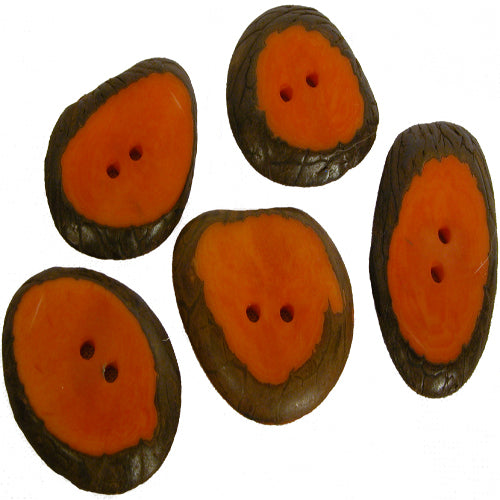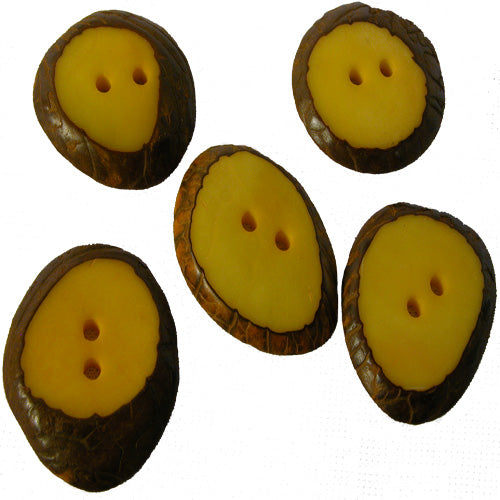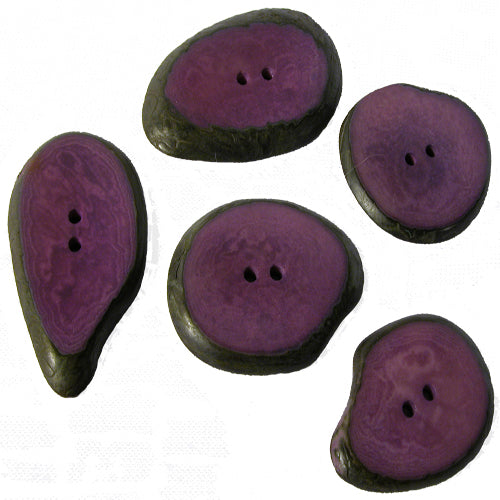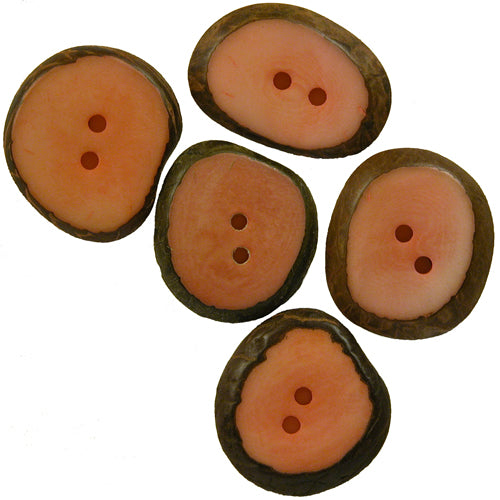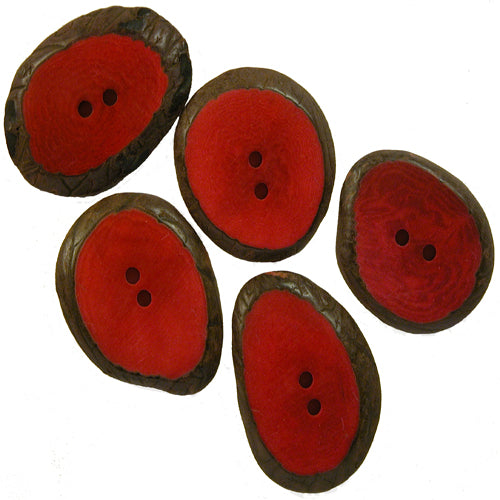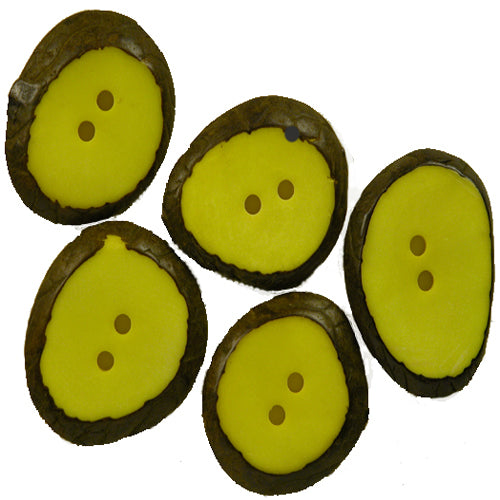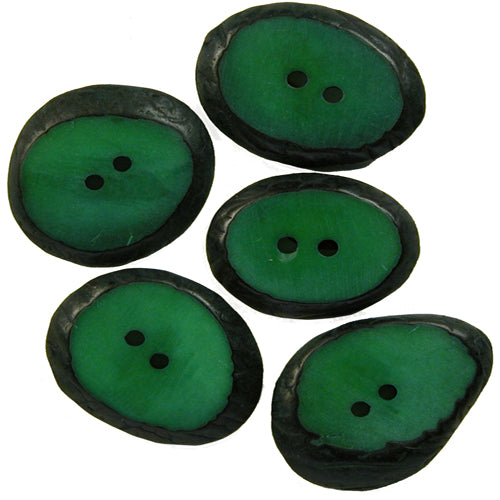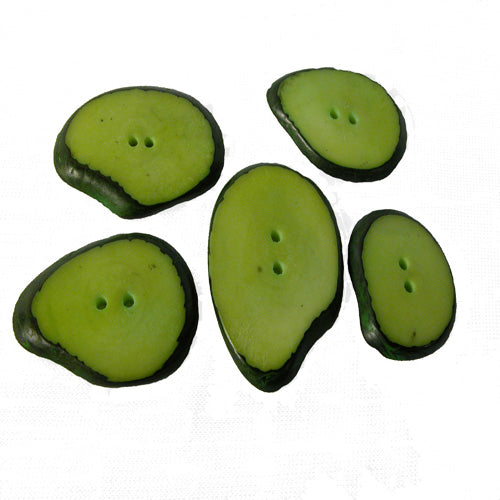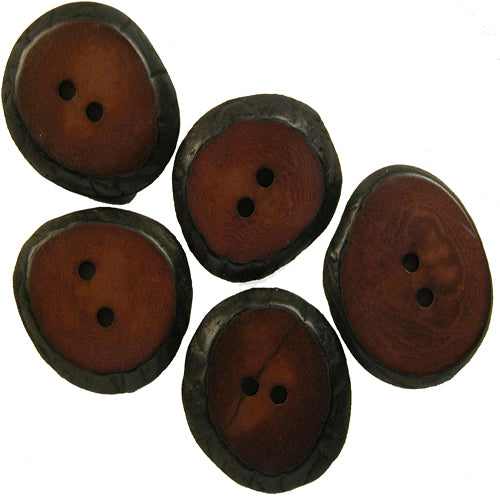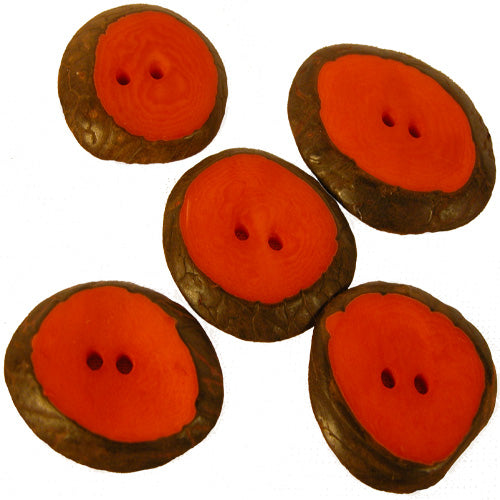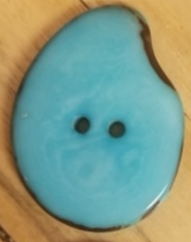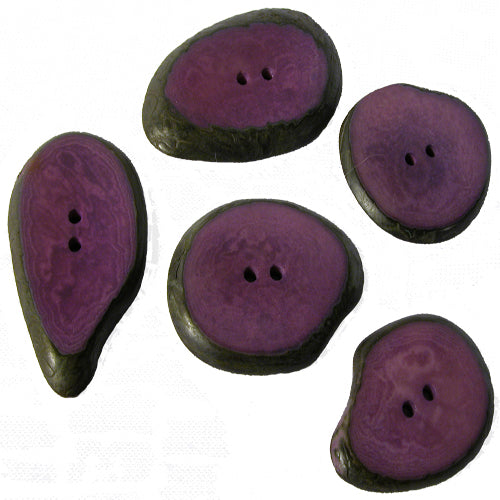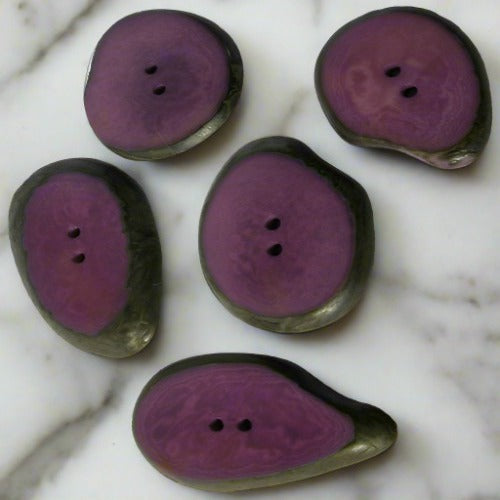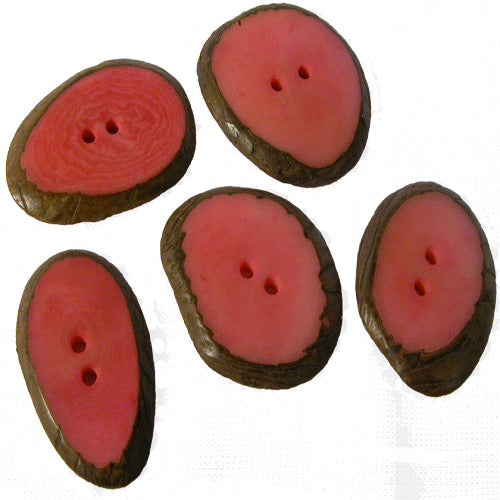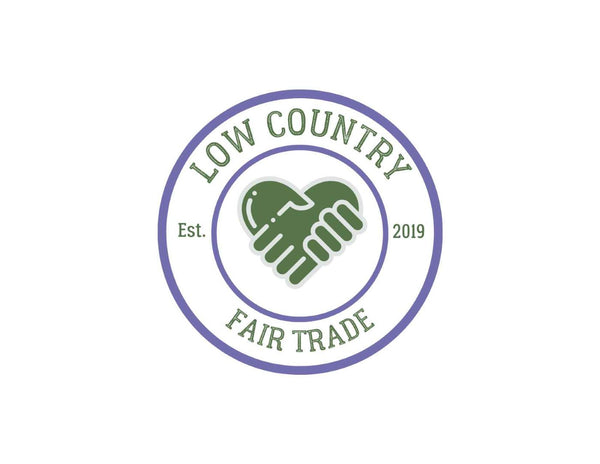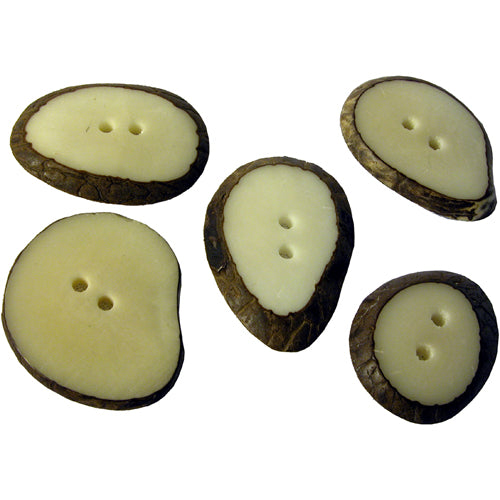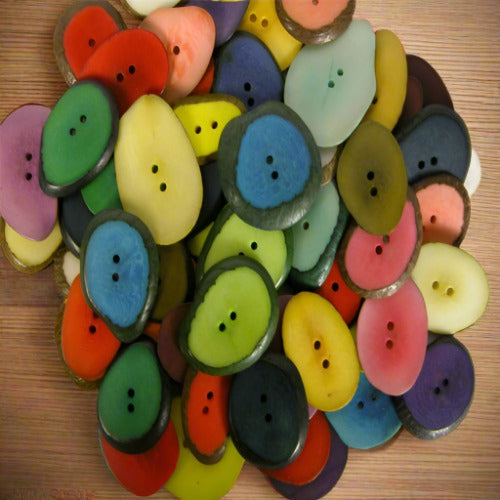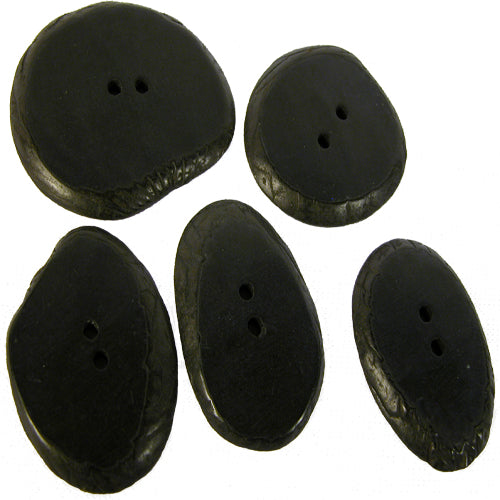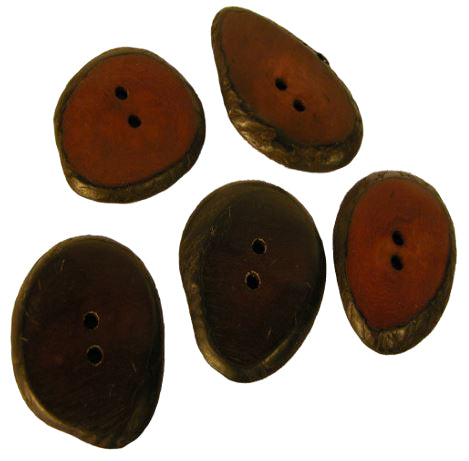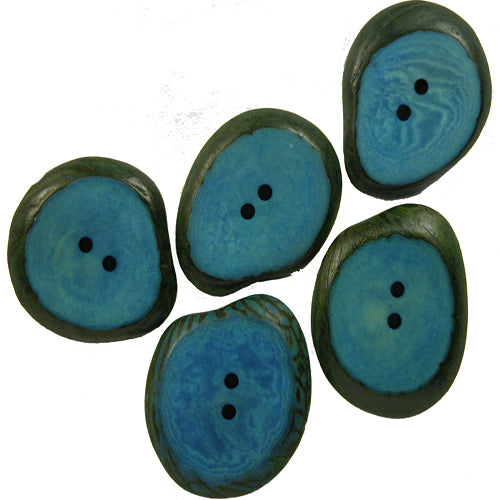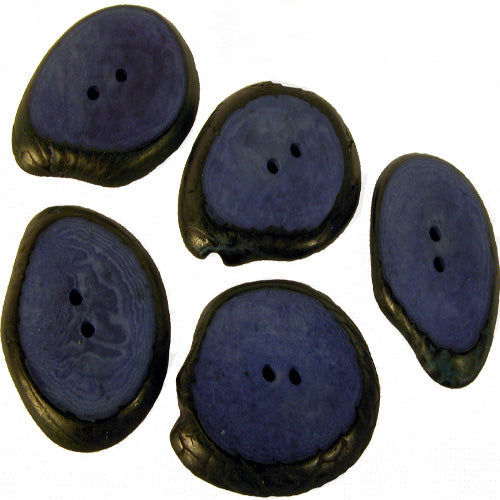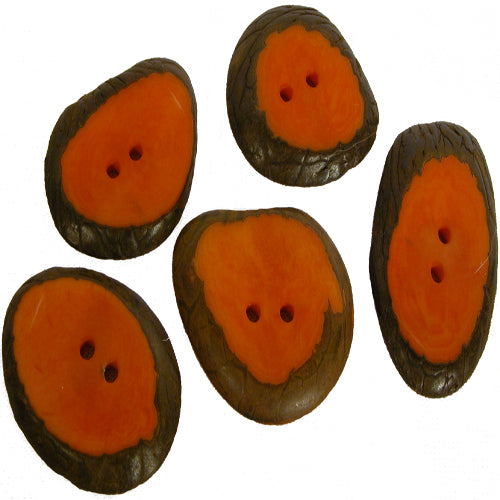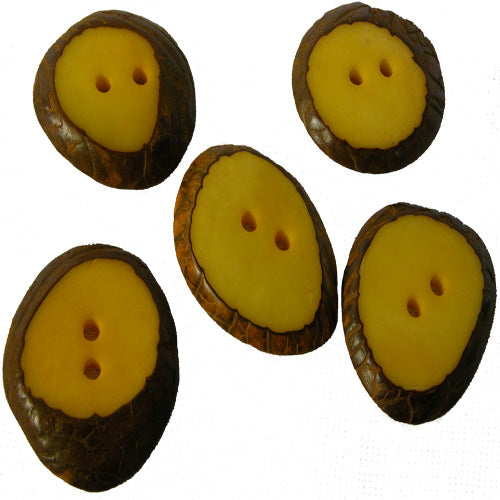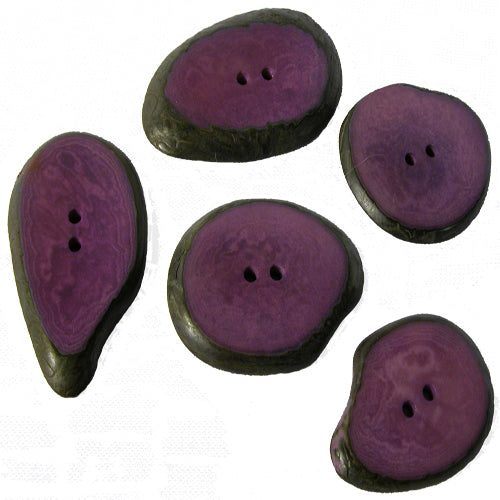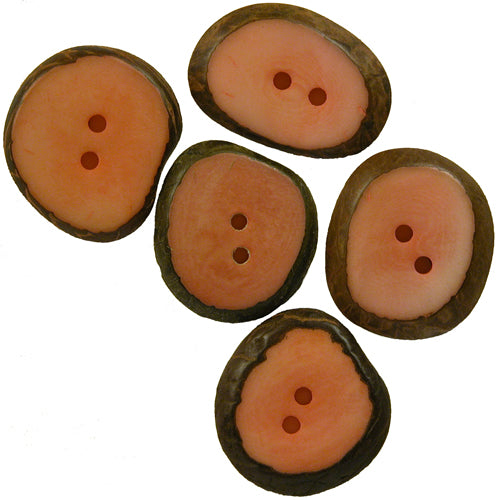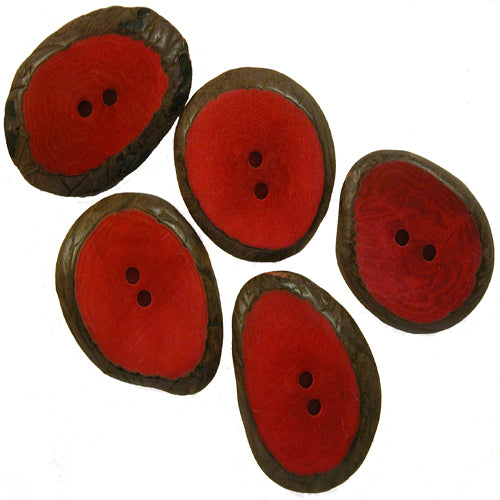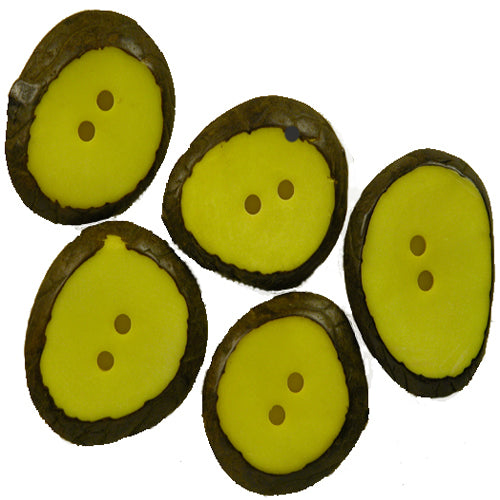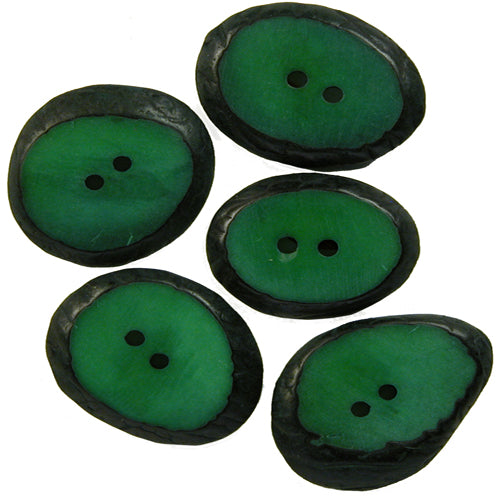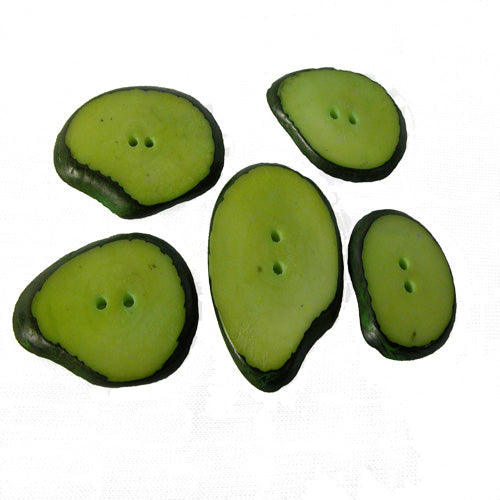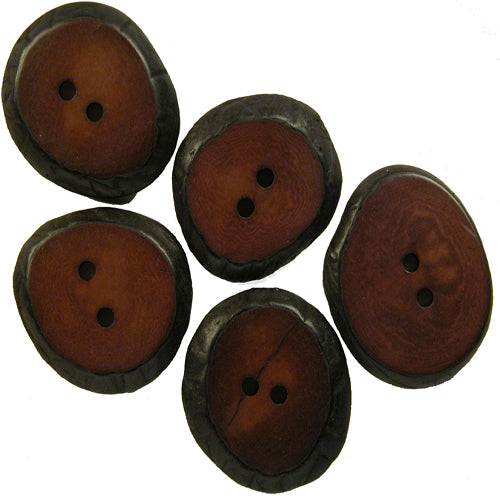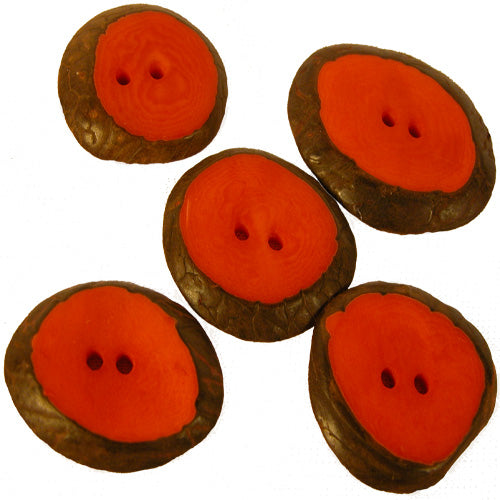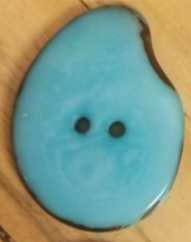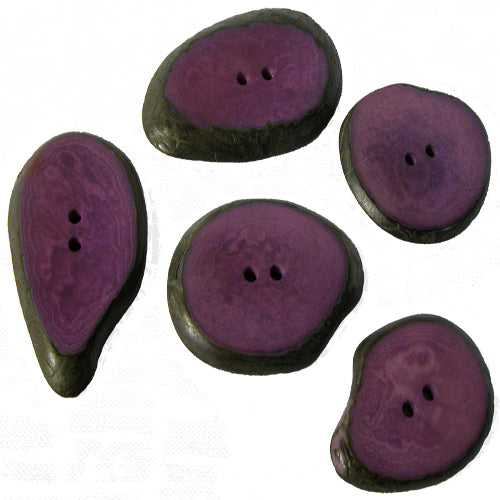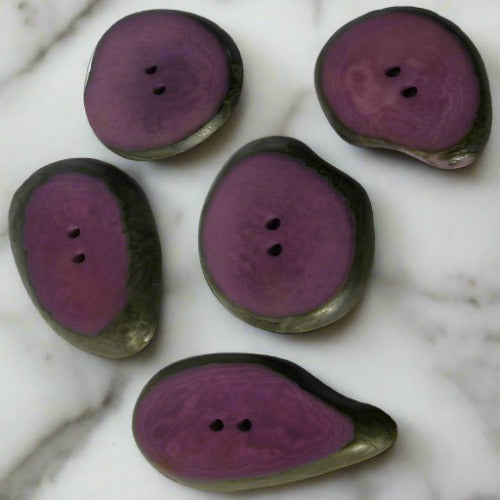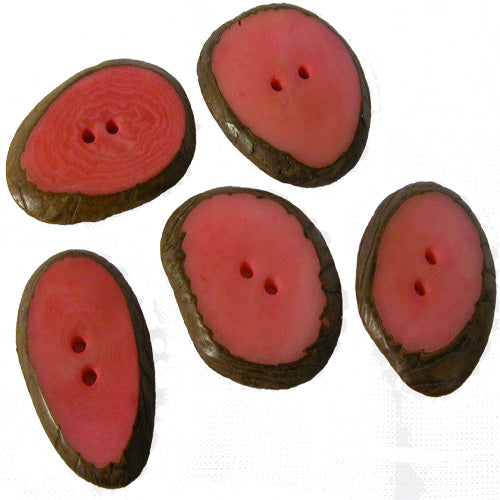OWP
Hand-Dyed Tagua Nut Buttons-Small-1Pc - Vegetable Ivory
Hand-Dyed Tagua Nut Buttons-Small-1Pc - Vegetable Ivory
Couldn't load pickup availability
Our Tagua Buttons are a great, and fun way of designing an item. We sell our buttons individually so when you work on a precise project you can order just what you need or if you want extra. *Bulk quantities in solid and mixed colors are sold separately.
Each Tagua button is one of a kind. They come from a rainforest nut known as Tagua, a.k.a. "Vegetable Ivory". It has a likeness to animal ivory but causes no harm to the rainforest or animals. Natural tagua buttons handmade in Ecuador and fair trade imported.
Measures 1-1/2" L and less
**Price is per button.
We encourage you to help save rainforests by considering a Tagua nut purchase. Please read our extended description below, under "About the Artisans" for more information on how tagua nut carvings are made, and how they have helped save thousands of acres of rainforest and wildlife habitat.
Share
About the Artisans
About the Artisans
Naya Nayon - Ecuador
The Techniques
Tagua is colored in many ways:
1. Boiling. Artisans achieve rich yellows and browns by boiling; this process essentially burns the tagua. The length of boiling time determines the color.
2. Inlay. Artisans inlay their carvings with the brown skin of the tagua nut, which is first ground into a fine powder, then mixed with super glue and reapplied to the carving's recesses.
3. Fermentation. Fermented tagua is yellow to chocolate in color and is produced when unpeeled tagua is left in the rain to ferment. This rots the shell and discolors the tagua nut inside.
4. Burning. Sometimes burning, particularly in jewelry, is accomplished with a wood-burning tool. This turns the tagua black and allows the artisan to etch designs into the tagua.
5. Dying. Many of our tagua nut beads are dyed. The tagua is placed in boiling water with the dye and the nut soaks in the color. Many of these colors are achieved through the use of natural plant-based dyes.
It's also important to note that, like animal ivory, most tagua will darken or antique over time, although the rate of discoloration seems related to the nut's moisture content. For example, tagua carvings that haven't been through the final drying phase yellow more rapidly than completely dried pieces, while exposure to sunlight speeds up discoloration.
The Naya-Nayon Artisan Story- Ecuador
Naya Nayon, an Ecuador-based NGO, counters poverty and deforestation by creating new jobs that depend on conservation and responsible forest management. To accomplish this goal, the company works with 23 local artisans to create figurines, jewelry, and ornaments from tagua nuts. These nuts grow year-round in Ecuador and can be harvested without detriment to the rainforest. Naya Nayon gives its artisans all the training, tools, and materials they need to work from home, and then manages work distribution from the organization's main office to make sure orders are fairly distributed.
Ecuador, the smallest of South America's countries, owes its unique biodiversity to its geographical setting and climate; a hybrid area of Pacific Coast beaches, sweltering rainforests, the UNESCO-protected Galapagos Islands, and the snow-capped volcanoes of the Andean highlands. Sadly pollution, deforestation, and global warming have threatened one of the World's most diverse ecosystems.
Fortunately, the collection and harvesting of tagua nut, a rainforest nut known as vegetable ivory for its likeness to animal ivory, has emerged as a viable alternative for villagers who once depended on logging, wildlife trafficking, and other unsustainable activities to earn a living. Tagua's smooth, hard texture offers artisans an ideal medium for carving jewelry, boxes, and other figurines, and helps keep animal ivory on real animals where it belongs. Harvesting tagua also encourages locals to depend on the rainforest for their livelihoods, which motivates them to better protect and conserve this part of the Amazon, thereby saving thousands of acres of trees, plants, and wildlife habitat. With the near extinction of animal ivory, tagua has become a highly valued commodity by artisans and consumers alike.
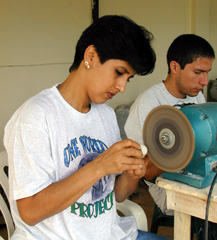
Tagua nuts are seeds that grow in pods called Cabezas from the Tagua nut palm tree. Villagers are paid to collect the Cabezas, which ripen and fall naturally onto the rainforest floor. The harvested seeds are taken to the artisans who will transform them into beautiful beads, jewelry, figurines, and other works of art.
There are five steps involved in creating a tagua nut figurine: shaping, detailing, sanding, polishing, and drying. Shaping is achieved using circular sandpaper with a very coarse grit. The piece is detailed with a Dremel tool and various bits and sanded with fine sandpaper. Next, the figurine is polished with a buffing cloth and a light polishing compound, and finally placed beneath paper or a towel to dry under a heat lamp for 24 hours. This is similar to incubating a chicken egg - not too hot, just nice and warm - and ensures the carvings won't crack later.
Naya Nayon's artisans work in home-based workshops throughout the country. Within each workshop, which is usually attached to an artisan's home, one artisan serves as the leader/manager and hires family members and friends to help produce products. New artisans begin by sanding and polishing figurines made by the more experienced artisans, and then gradually progress into the more complicated aspects of the craft, such as detailing, burning/coloring, and finally shaping the crude form of the nut. As demand and production increases, more artisans are invited to join the workshop. When the workshop grows to about 8 people, an experienced worker leaves to form a new workshop and train new artisans, and the cycle of learning continues.
Despite their humble backgrounds, many of Naya Nayon's artisans are highly educated with university degrees in engineering, law, business, and medicine. Unfortunately, Ecuador's shaky economy means jobs are scarce, even for highly qualified professionals. Thankfully, Tagua nut carving has emerged as a sustainable alternative and is often the primary source of income for an artisan's family.
